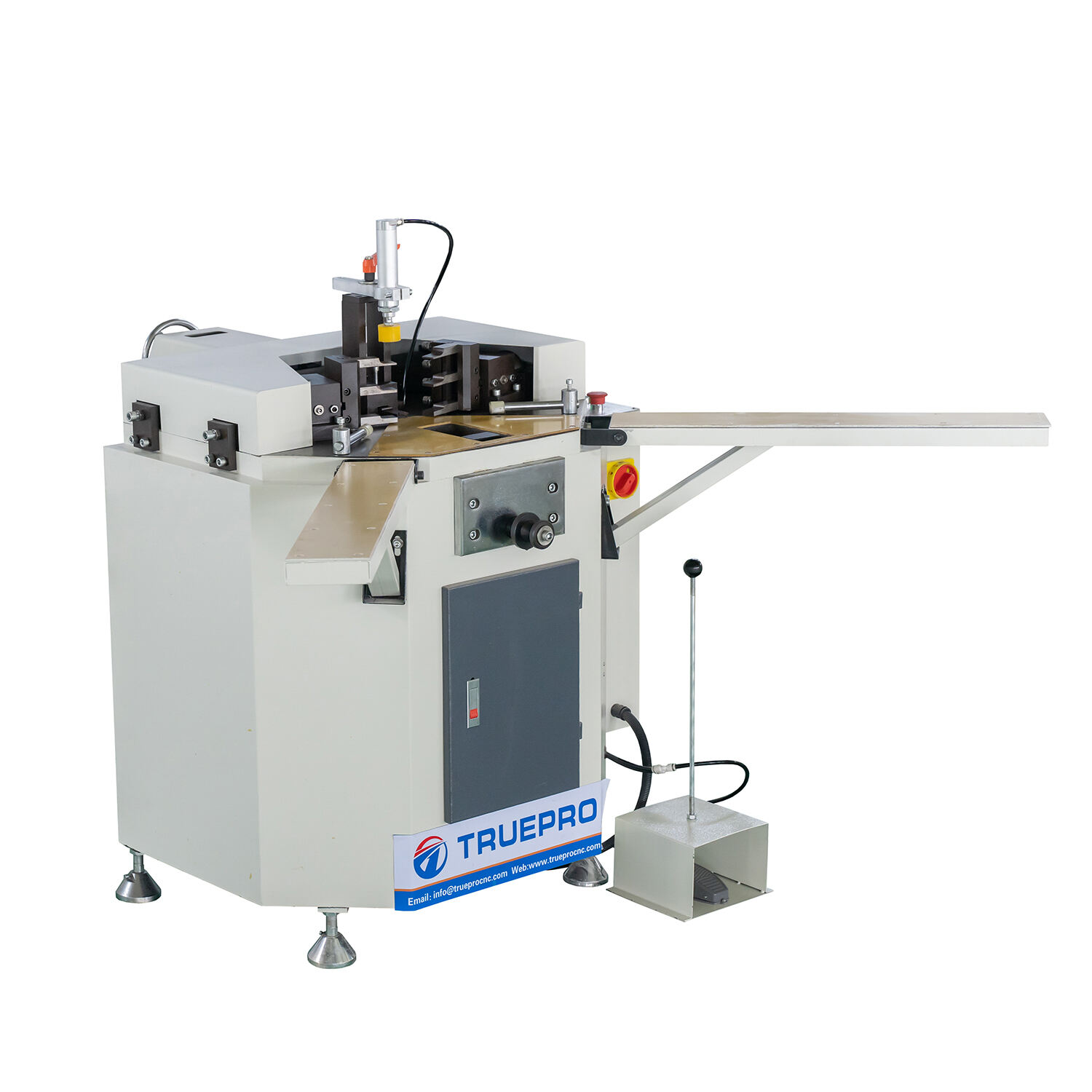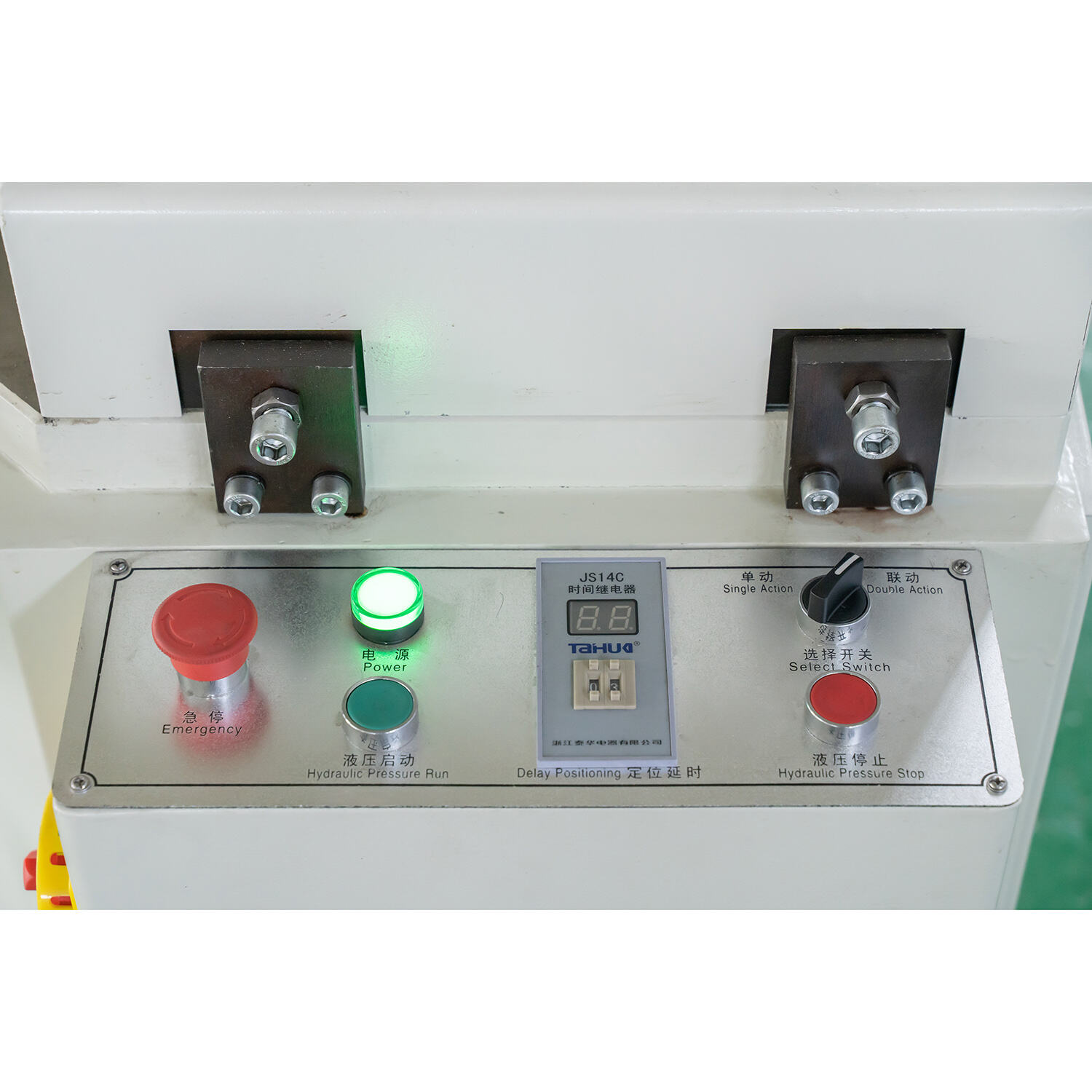What ISO 9001:2015 Means for Bending Machine Manufacturers
Getting ISO 9001:2015 certification shows that companies making bending machines stick to quality management standards that are accepted worldwide. The certification process means they have to document how they make things, do regular checks inside their own operations, and keep improving all the time. A recent study from Quality Digest back in 2023 showed something interesting - factories with this certification saw about 21 percent fewer problems during production than those without it. When suppliers follow ISO rules, they standardize important steps like checking materials and calibrating those CNC controllers. This helps maintain good results especially for parts where consistency matters most, think hydraulic systems for example. Most businesses find this kind of structured approach pays off in the long run.
How ISO Certification Ensures Quality and International Compliance
When it comes to ISO certified suppliers, they basically have to jump through all sorts of hoops to satisfy regulations in key markets around the world. Getting certified means following those strict EU Machinery Directive safety rules plus hitting those U.S. ANSI performance targets nobody really talks about but everyone knows are there. Every year these suppliers undergo third-party checks to make sure their machines can position press brake rams within just 0.05 millimeters of accuracy - pretty impressive when you think about it. They also need detailed records showing where every scrap of raw material came from, something that lines up with OECD guidelines about keeping minerals out of conflict zones. All this red tape might seem like a hassle, but it actually cuts down on legal headaches for companies buying equipment. Take Germany for instance, where almost every big industrial purchase contract (about 92% according to VDMA stats from last year) demands ISO certification before any deals get signed.
Benefits of Partnering with an ISO-Certified Bending Machine Supplier
Choosing an ISO-certified supplier offers three key advantages:
- Supply chain transparency: Digitized quality logs allow real-time tracking of assembly stages.
- Scalable maintenance protocols: Standardized documentation streamlines technician training and spare parts logistics.
- Market agility: Pre-validated compliance shortens CE marking timelines by 3-6 weeks.
A case study by Columbus Hydraulics showed that preventive maintenance standardization reduced hydraulic press downtime by 34%. Additionally, ISO-recognized suppliers experience 28% faster import processing in ASEAN countries, according to the Pacific Certifications' 2024 trade report.
Evaluating Supplier Reliability: Beyond the ISO Certificate

Key Indicators of a Trusted Bending Machine Vendor
While ISO 9001:2015 sets a baseline for quality, manufacturers should also assess operational transparency, financial stability, and delivery consistency. A 2023 International Manufacturing Association survey revealed that 85% of companies faced delays due to vendors with weak inventory systems. Reliable suppliers typically offer:
- Publicly available financial reports covering at least three years
- Client references from similar-scale operations
- Documented on-time delivery rates above 95% over multiple quarters
Industry benchmarks suggest evaluating capacity utilization ratios; vendors operating at 70-85% capacity tend to balance responsiveness with long-term reliability.
Assessing Real-World Performance vs. Certification Claims
Certification alone doesn’t guarantee precision. A 2024 cross-industry analysis found 23% of ISO-certified suppliers failed to meet client-specific tolerances (e.g., ±0.01mm) for hydraulic cylinders. To validate performance, conduct live production trials using your materials and measure:
- Dimensional accuracy across 50+ consecutive bends
- Recovery time after high-load cycles
- Actual energy consumption versus published specs
Procurement experts recommend using weighted scorecards to compare vendors’ throughput (parts/hour) and defect rates against contractual commitments.
Auditing Quality Management Systems in Manufacturing Facilities
On-site audits are essential for verifying quality control. Focus on these operational tiers during inspections:
| Audit Tier | Verification Focus | Industry Standard |
|---|---|---|
| Component Storage | Traceability of raw material batches | AS9100D |
| Production Floor | Calibration logs for CNC controllers | ISO/IEC 17025:2017 |
| Final Inspection | Documented non-conformance resolution | IATF 16949:2016 |
Review at least 12 months of maintenance records—improperly maintained hydraulic systems account for 68% of machine failures (Manufacturing Technology Institute, 2023).
The Role of After-Sales Technical Support in Bending Machine Operations
Why Reliable Support Reduces Downtime and Boosts Productivity
When bending machines go down, companies typically lose around $15k every single hour just sitting there waiting for fixes according to Industrial Automation Journal from last year. ISO certified suppliers really cut down on these headaches though. They've got tech support available all day long and can get replacement parts shipped out super fast too. Most problems get sorted within just four hours when working with them. A lot of these certified vendors will actually throw in extended warranties covering important stuff like hydraulic pumps and those fancy CNC controllers. People who stick with the official support programs tend to experience about 40% fewer unexpected breakdowns throughout the year than folks going the cheaper route with non-certified service options.
Common Gaps in Technical Support from Non-Certified Suppliers
Non-certified suppliers often lack structured service frameworks, leading to:
- Slow response times (72+ hours for complex repairs)
- Inadequate operator training
- No guaranteed spare parts availability
A 2023 audit found that 63% of non-certified vendors could not substantiate their '24-hour support' claims. In contrast, ISO-certified manufacturers maintain regional service hubs with pre-stocked components for common machine models.
Case Study: Improving Efficiency with Certified Supplier Support
A Midwest automotive parts manufacturer cut press brake downtime by 60% after switching to an ISO 9001-certified supplier. The new partner introduced:
| Metric | Before Certification | After Certification |
|---|---|---|
| Mean Time to Repair (MTTR) | 14.5 hours | 5.2 hours |
| Preventative Maintenance | Quarterly | Bi-weekly |
| Operator Training Updates | Annually | Quarterly |
This change recovered 290 production hours annually, equivalent to $3.2M in regained revenue. Ongoing support included real-time monitoring via the supplier’s proprietary predictive maintenance platform.
Step-by-Step Guide to Identifying ISO-Certified Bending Machine Suppliers
Verify ISO 9001:2015 Status Through Official Channels
Confirm a supplier’s ISO 9001:2015 certification through the ISO Certification Navigator or national accreditation bodies like ANAB. Validate certificate registration numbers and scope details—28% of compliance issues in 2023 stemmed from expired or misrepresented certifications (Ponemon 2023). For added confidence, request summaries of third-party audits showing how nonconformities were resolved.
| Certification Check | Non-Certified Supplier Risk |
|---|---|
| Valid ISO 9001:2015 | Undocumented quality processes |
| Annual audit reports | Inconsistent material traceability |
| Scope alignment | Higher defect rates (avg. 12%) |
Request Documentation and Factory Audit Reports
Ask for access to:
- Quality control manuals outlining bend-angle tolerances
- Machine calibration records from the past 12 months
- Material certifications for steel and aluminum alloys
In 2023, 35% of manufacturers upgraded their quality systems after failing to provide traceable documentation (IMTS 2024). Compare defect rates: certified suppliers average 3.2% rework, while non-certified competitors face 9.1%.
Evaluate Supplier Capabilities in Line with Your Production Needs
Align machine specifications with your operational demands:
- Material compatibility: Ensure capacity matches your stainless steel or aluminum gauge range
- Precision thresholds: Require ±0.1° angular accuracy for aerospace applications
- Throughput: Seek 150+ bends/hour for high-volume auto production
Certified suppliers using ISO-aligned spindle calibration reduce setup time by 18% compared to manual methods (IMTS 2024). Prioritize vendors offering lifecycle cost projections—ISO-certified partners typically deliver 23% lower operational costs over three years.
Frequently Asked Questions (FAQ)
Why is ISO certification important when choosing a bending machine supplier?
ISO certification ensures that the supplier adheres to recognized quality management standards, reducing the likelihood of production errors and compliance issues. It often leads to greater operational efficiency and international market acceptance.
What are the benefits of partnering with an ISO-certified supplier?
Partnering with an ISO-certified supplier provides supply chain transparency, scalable maintenance protocols, and market agility by shortening compliance timelines.
How can I verify if a supplier is ISO-certified?
Verify a supplier’s ISO certification through official channels like the ISO Certification Navigator or national accreditation bodies. Check for valid registration numbers, scope details, and request third-party audit summaries.
Does ISO certification guarantee superior real-world performance?
While ISO certification sets a quality standard, it does not guarantee precision. It's important to conduct live production trials to ensure a supplier meets your specific performance requirements.
What should I consider beyond ISO certification when selecting a supplier?
Beyond ISO certification, assess the supplier’s operational transparency, financial stability, delivery consistency, and real-world performance to ensure long-term reliability.
Table of Contents
- What ISO 9001:2015 Means for Bending Machine Manufacturers
- How ISO Certification Ensures Quality and International Compliance
- Benefits of Partnering with an ISO-Certified Bending Machine Supplier
- Evaluating Supplier Reliability: Beyond the ISO Certificate
- The Role of After-Sales Technical Support in Bending Machine Operations
- Step-by-Step Guide to Identifying ISO-Certified Bending Machine Suppliers
-
Frequently Asked Questions (FAQ)
- Why is ISO certification important when choosing a bending machine supplier?
- What are the benefits of partnering with an ISO-certified supplier?
- How can I verify if a supplier is ISO-certified?
- Does ISO certification guarantee superior real-world performance?
- What should I consider beyond ISO certification when selecting a supplier?

